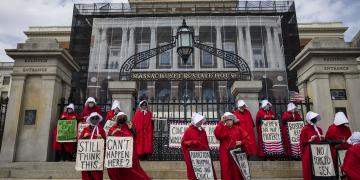
© ERIN CLARK/GLOBE STAFF
The Handmaid's Tale is a dystopian text that underscores women's activism, bearing its transmedia potential. This article, therefore, examines how its thematic focus transcends other media toward political advancement for women.